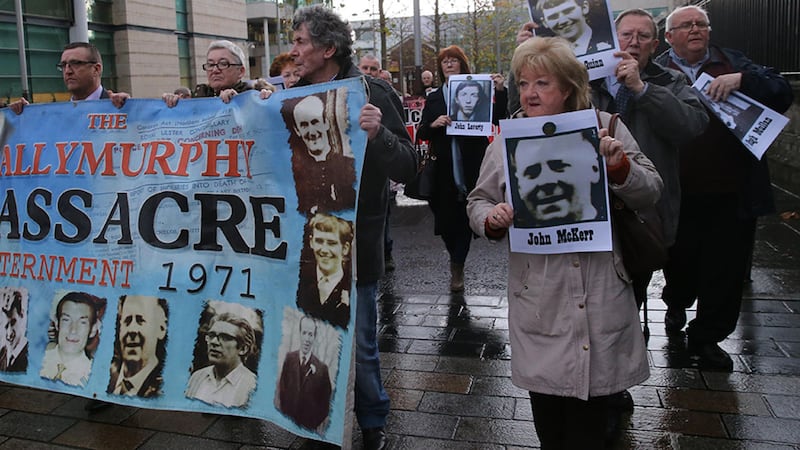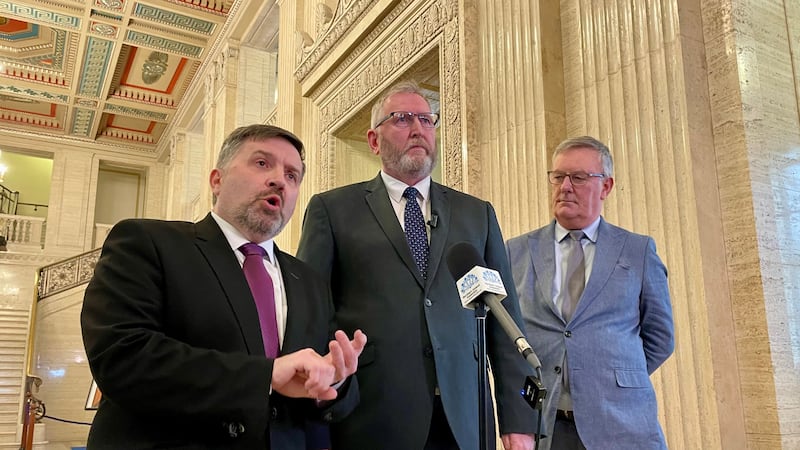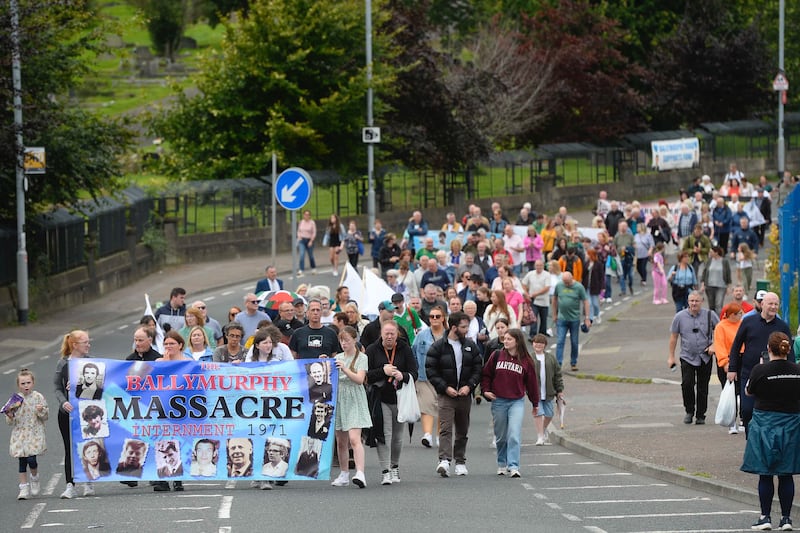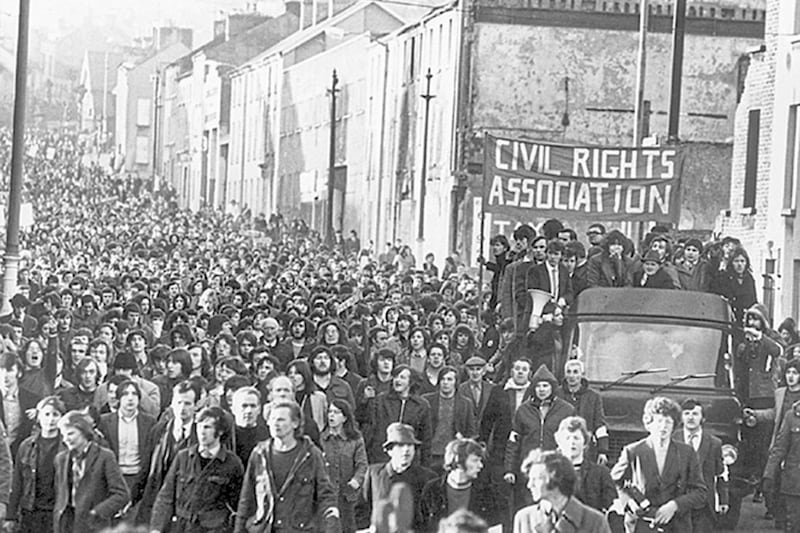The families of ten people shot dead by soldiers in west Belfast 45 years ago have won High Court permission to challenge the withholding of funding for inquests into the deaths.
Lawyers for the Ballymurphy families were granted leave to seek a judicial review against the Stormont Executive and the British Government.
They claim the continued refusal to release resources is thwarting a five-year plan devised by Northern Ireland's most senior judge to deal with a backlog of tribunals into Troubles-related killings.
Barrister Fiona Doherty QC argued: "These legacy inquests have been sucked into the pernicious politics of this jurisdiction.
"Its time for the court to exercise it's constitutional role and uphold the rule of law."
Legal proceedings were issued on behalf a daughter of one of the civilians shot dead in Ballymurphy over a three-day period during the introduction of internment in August 1971.
A separate action is being taken on behalf of the families of eight IRA men ambushed and killed by the SAS at Loughgall, Co Armagh in May 1987.
Both challenges are aimed at securing an order for the release of money required to hear all outstanding legacy inquests.
Lord Chief Justice Sir Declan Morgan has called for urgent action to fund his blueprint for having all cases dealt with within five years.
With the cost of the plan estimated at around £10m, the government has said resources will not be released until a political agreement is reaching on dealing with the past.
In court today counsel for the Stormont Department of Justice and the Secretary of State for Northern Ireland said he was not opposing leave to seek a judicial review in the Ballymurphy proceedings.
Tony McGleenan QC accepted that an arguable case worthy of further consideration had been raised.
He also confirmed no instructions had been provided by the third respondent in the case - the Office of First Minister and Deputy First Minister.
Ms Doherty emphasised how the Lord Chief Justice's plan represents "extraordinary progress" from his previous warning that legacy inquests could be continuing in 2040.
She contended that it was now time for the government to intervene.
"This is a particular situation where the refusal of the devolved administration to do what they are duty bound to do is at such a stage now... that it's time for the Secretary of State to step in," she added.
Following submissions Mr Justice Maguire ruled that he was granting leave to apply for a judicial review in the Ballymurphy case.
He adjourned the Loughgall challenge for lawyers to refine the points being made in the papers.
With issues over managing a wider range of inquest-related court actions, the judge has yet to decide which will be the lead case to deal with the issues raised.
He explained: "I'm looking for a vehicle that can be heard swiftly and will not be caught up in a long period of gestation."
Earlier, lawyers for the families of those killed in the Loughgall ambush accused DUP First Minister Arlene Foster of being responsible for the funding logjam.
Barry MacDonald QC also argued that a press report where she referred to a perceived skewing towards inquests into state killings pointed to a discriminatory approach.
"The reason why the (funding) proposal has been blocked appears to be a perception on the part of the First Minister, and more widely of the DUP, that there's some kind of imbalance," he told the court.
The barrister contended that reference to innocent victims and killings by paramilitary groups indicated a reliance on political opinion about different categories of cases.
"There has been no formal decision issued to the families about the funding arrangements," he added.
"All we can go on is the position in the media reports about what the First Minister has said, and it seems to be the case there's an abundance of evidence to the effect that it's the First Minister specifically and the Executive Office more generally that has prevented the matter being resolved."
Mr McGleenan responded that any allegations of discrimination being made against the Department of Justice and Secretary of State were unsustainable.
He also stressed that the challenge was against a decision taken after the 2016 Assembly elections and formation of a new Stormont Executive.
Rejecting claims of any involvement in a blocking of categories of victims, Mr McGleenan said: "The Department of Justice has not put forward a proposal for funding to the Executive committee in this mandate.
"The contention that there's been discrimination based on blocking by the Secretary of State, by the Department of Justice and by others does not have any evidential foundation."
Adjourning the Loughgall case, Mr Justice Maguire directed a redrafting of points being made in the legal papers








